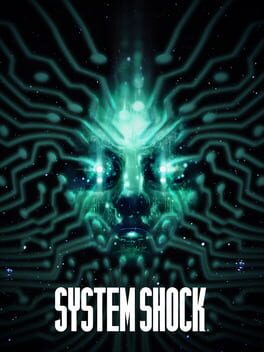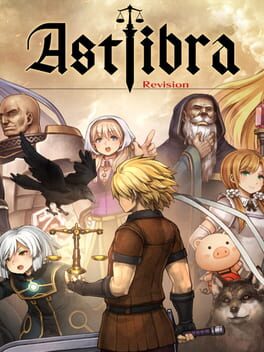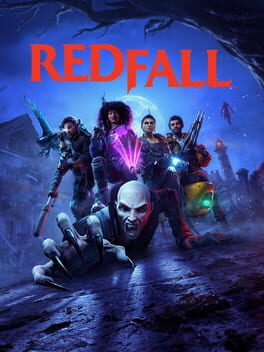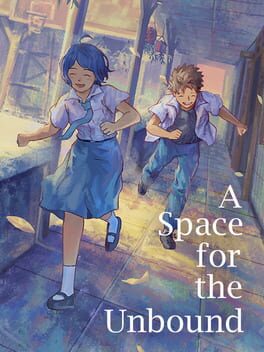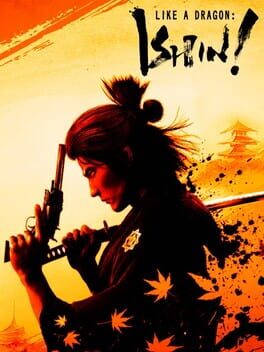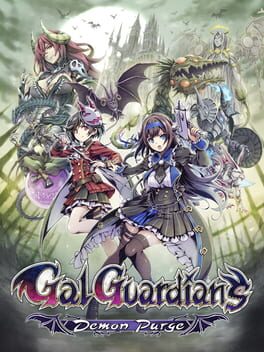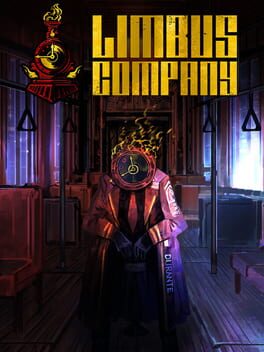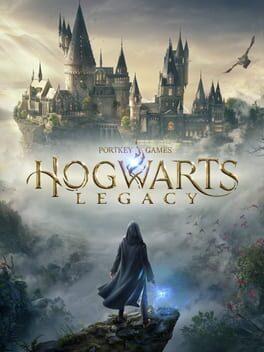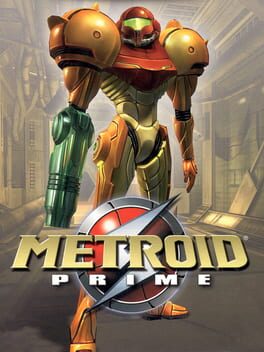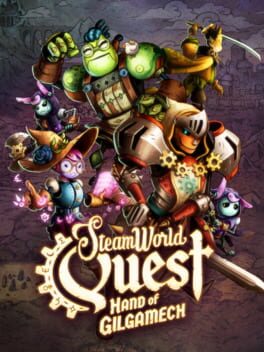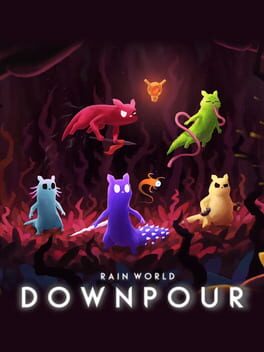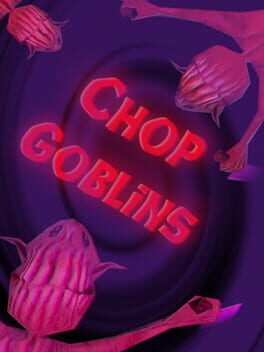Cakewalking
2023
2022
2023
There exists a version of this game that's my favorite ever, but for every genuinely amazing and astonishing thing ToTK does there's gotta be three ways it undermines itself, wearing all the excitement off. For a game where you supposed make your own fun, more oftent than not you have to drag this fun out with tweezers.
2023
How do you carry on when your life in the running up to adulthood is, admittedly, a wreck? Is there a way to cope with depressive thought if the mask you put on to endure loss and abuse only attracts more anguish and misery? What to do when you keep pushing away the people dearest to you? A Space for the Unbound may not have the most sophisticated answer, but it excels in its wonderful sincerity. Cherishing your vision of existence, giving space to make amends with those who worth, and holding on to the most precious memories will go a long way towards healing.
Damn, spending a few evenings to read on the turning events of Bakumatsu and nearly mythical status of Sakamoto Ryoma in Japanese culture paid off in spades. This isn't simply a history lesson with cool Yakuza dudes – Ishin's entire shtick is a subversion and dramatization of events that turned the course of Japanese history around. The prior context is, in fact, so cornerstone to key reveals and emotional bits, you kinda see why developers were so wary about bringing the game outside of Japan? The more happy it makes me they trusted our curiosity to learn this context ourselves. When RGG storytelling dramatism and historical anticipations truly synthesise — it's a fucking riot.
Where it does kidna lose me is in the handling of Shinsengumi? RGG games can sometimes be conflicted like that, but more thought should be given to the fact that we work with literal fash secret police, be it history or not. The game doesn't even embellish them and fully elaborates on atrocities they commit. And yet the adherence to subvert Sakamoto Ryoma's legend is just so backbreaking, to the point we're simply required to accept that some boys in blue are ready to put their lives for the future of reformed country just as we are, and it's just so at odds with the rest of the story told. Love Majima and Mine as much as the other guy, but I'm just not buying it here.
As a digression I'd add that Kiwami remake is actually totally fine? In most shots it looks better than before (unless you enjoy the swelter of seventh gen piss filter), the trooper system is a fun additional thing to play around (and can be totally ignored if you wish so), and cast changes are mostly for the better (you're lying to yourself if you think Zhao sells his character worse than fucking Baba). If anything, it could change more.
Where it does kidna lose me is in the handling of Shinsengumi? RGG games can sometimes be conflicted like that, but more thought should be given to the fact that we work with literal fash secret police, be it history or not. The game doesn't even embellish them and fully elaborates on atrocities they commit. And yet the adherence to subvert Sakamoto Ryoma's legend is just so backbreaking, to the point we're simply required to accept that some boys in blue are ready to put their lives for the future of reformed country just as we are, and it's just so at odds with the rest of the story told. Love Majima and Mine as much as the other guy, but I'm just not buying it here.
As a digression I'd add that Kiwami remake is actually totally fine? In most shots it looks better than before (unless you enjoy the swelter of seventh gen piss filter), the trooper system is a fun additional thing to play around (and can be totally ignored if you wish so), and cast changes are mostly for the better (you're lying to yourself if you think Zhao sells his character worse than fucking Baba). If anything, it could change more.
2023
2023
Bizarre how this game is trying to present wizarding world of 1890 as this secret island of progressiveness and liberalism with a few rotten apples here and there. Everyone is welcoming and friendly, there's no tension with teachers or rivalry between houses, your student buddy is a black girl from (soon to be a British colony) Uganda, a blind kid in Slytherin dorm complains about his father being a boomer blood racist, you can enter any bathroom in the school despite your assigned dormitory etc. It's truly a wholesome chungus version of Hogwarts, created as a smokescreen so you wouldn't think too hard about fantasy slavery and institutionalized stratification of wizarding society. The way to put distance between the game and woeful worldviews of the author. A scheme that doesn't pan out at all as the story uses goblin uprising as window dressing instead of the venicle to address inherent injustices of this fictional world.
But what if, for a moment, we try to disregard the elven slavery and goblin racism, Rowling's politics and hack writing. What will you find? Nothing short of another checklist open-world game. All the artistry, gigabytes of assets and hours of voice acting went into filling the wonderful recreation of Hogwarts with icons and one-button chores to raise your gear score. At one point the world map opens up with the massive grassland expanse full of goblin camps to clear. You'll find a Harry Potter game without characters to befriend or mysteries to ponder. There's no wish fulfillment, no secret life escapism — things that made HP the inescapable cultural phenomenon with millennials like myself in the first place.
I'm amazed it came down to this when Atlus figured out a socialite RPG framework 18 years ago. Like, a Hogwarts game with calendar system would still be junk food, but at least in somewhat inspired serving. I should be attending wizarding classes and looking for ways to break school rules with my scrunklo Slytherin buddies. Instead I'm mass murdering goblin population and checking with ancient magic hotspots so I can deal 3 more damage with "basic cast". The fleeting charm of opening hours evaporates as square socket structure of the game laids bare, and so is my desire to engage with such slop.
But what if, for a moment, we try to disregard the elven slavery and goblin racism, Rowling's politics and hack writing. What will you find? Nothing short of another checklist open-world game. All the artistry, gigabytes of assets and hours of voice acting went into filling the wonderful recreation of Hogwarts with icons and one-button chores to raise your gear score. At one point the world map opens up with the massive grassland expanse full of goblin camps to clear. You'll find a Harry Potter game without characters to befriend or mysteries to ponder. There's no wish fulfillment, no secret life escapism — things that made HP the inescapable cultural phenomenon with millennials like myself in the first place.
I'm amazed it came down to this when Atlus figured out a socialite RPG framework 18 years ago. Like, a Hogwarts game with calendar system would still be junk food, but at least in somewhat inspired serving. I should be attending wizarding classes and looking for ways to break school rules with my scrunklo Slytherin buddies. Instead I'm mass murdering goblin population and checking with ancient magic hotspots so I can deal 3 more damage with "basic cast". The fleeting charm of opening hours evaporates as square socket structure of the game laids bare, and so is my desire to engage with such slop.
2002
If slowly walking through lava caverns, scanning things, matching the color of a peashooter to the color of an enemy, slowly walking through lava caverns, fighting the most tedious bosses in all of Metroid, slowly walking through lava caverns, not having a satisfying metroidvania progression or sequence breaks, ignoring enemies and slowly walking through lava caverns sounds like an awesome time then you HAVE TO play this incredible 138 Metacritic score masterpiece.
In all seriousness I really wanted to like Prime but man, this got very tiring the moment the novelty of "Metroid but first-person wore off". Everything related to morph balling was awesome though! Maybe this could've been an even cooler Metroid Marble Blast spin-off.
In all seriousness I really wanted to like Prime but man, this got very tiring the moment the novelty of "Metroid but first-person wore off". Everything related to morph balling was awesome though! Maybe this could've been an even cooler Metroid Marble Blast spin-off.
Library of Ruina awakened an interest in singleplayer deckbuilding RPGs for me, so I went on a genre cruise looking for similar games. And Hand of Gilgamech was really, really good at first. I like Steamworld artstyle and distinctive wobbly funky animations, I enjoyed the characters and their humorous non-binding misadventure. The mechanical rationale quickly unrolled here and presented a pleasant combat system where you have to balance the economy of cogs, setting up same-color combos by maintaining equilibrium between "free" cards and "hero" cards and keeping the deck rotation with free redraws. This was shaping up to be soild 4 stars! Until act 3 hit and many glaring issues became apparent:
— A lot of enemy designs are just bad. Too many encounters set up not exactly calling for interesting decisions but rather being a hindrance prolonging the length of combat. Too many enemies to whom you can't really lose even if you play poorly, but they waste so much of your brain energy when you play optimally.
— Because you can draw all "hero" cards and no economy cards it is possible to brick as early as first turn! Which is incredibly annoying, and coupled with sandbagging enemies this can lead to many wasted turns and just a total stall of a fight.
— And what I think the biggest wasted potential is how it doesn't exercise the greatest strength of deckbuilders and, just like many other RPGs, lets you slide into a comfortable rut and find one single strategy that will work until the end of time. Once the last character joined my party I quickly figured out a strong balanced composition that seemed to have a good damage output without glaring weaknesses. Then out of interest I opened some random let's play to check what they do. They were on the final boss, running the same exact composition as me down to specific cornerstone cards! Meaning we both independently ended up making the same decisions and didn't really bother to adapt, because there's no real need to adapt. This was the moment that pretty much killed it for me. In Ruina it was always a given that I'd get my ass handed if I dared to run the same exact builds for longer than A fight. In Gilgamech I could just go through motions for the rest of the game, slogging through annoying ass enemies until I win.
I still have about 30% of the campaign left, but this is also the point where story and level visuals fell off so even vibes aren't keeping it anymore. Really wish I didn't stop caring so abruptly, because the game is only one-two tuning passes away from being at least rather decent. But oh well.
— A lot of enemy designs are just bad. Too many encounters set up not exactly calling for interesting decisions but rather being a hindrance prolonging the length of combat. Too many enemies to whom you can't really lose even if you play poorly, but they waste so much of your brain energy when you play optimally.
— Because you can draw all "hero" cards and no economy cards it is possible to brick as early as first turn! Which is incredibly annoying, and coupled with sandbagging enemies this can lead to many wasted turns and just a total stall of a fight.
— And what I think the biggest wasted potential is how it doesn't exercise the greatest strength of deckbuilders and, just like many other RPGs, lets you slide into a comfortable rut and find one single strategy that will work until the end of time. Once the last character joined my party I quickly figured out a strong balanced composition that seemed to have a good damage output without glaring weaknesses. Then out of interest I opened some random let's play to check what they do. They were on the final boss, running the same exact composition as me down to specific cornerstone cards! Meaning we both independently ended up making the same decisions and didn't really bother to adapt, because there's no real need to adapt. This was the moment that pretty much killed it for me. In Ruina it was always a given that I'd get my ass handed if I dared to run the same exact builds for longer than A fight. In Gilgamech I could just go through motions for the rest of the game, slogging through annoying ass enemies until I win.
I still have about 30% of the campaign left, but this is also the point where story and level visuals fell off so even vibes aren't keeping it anymore. Really wish I didn't stop caring so abruptly, because the game is only one-two tuning passes away from being at least rather decent. But oh well.
2023
If Rain World was Tarkovky's Stalker, then Downpour is a collection of AO3's best rated fanfics of Tarkovsky's Stalker. The bloat here is stupefying, most times at odds with the sanctity of original vision, and unfathomably cursed when one of the campaigns ends on a combat gauntlet with a final boss in the end. You cannot deny care and attention that went into Downpour construction tho, and there's still that same brilliant core that makes any progress journeying through the world an undertaking of extraordinary reward. Slugcats with neat gimmicks present a rather good time but I'd recommend meeting them with managed expectations.
2023
From self-aware yet high-spirited attitude to the soundtrack curated by a person with the deepest 2004 taste palette, this is such a refreshing 2000s piece. It's so impressive how the commitment to the beat isn't just an enhancement to presentation — it's your guide in combat, the one that trains you to discern visual and audio cues, restricts button mashing, makes long strings of attacks a commitment; in other words, it teaches you how to play a spectacle action game! And for the price of admission there's a lot of game here, by no means it's less substantial than Bayonettas and Devil May Cries of the world. Simply a tremendous surprise.
And to all people saying Tango finally made a good game: maybe it's time to recognize that Tango was always good.
And to all people saying Tango finally made a good game: maybe it's time to recognize that Tango was always good.
2022
